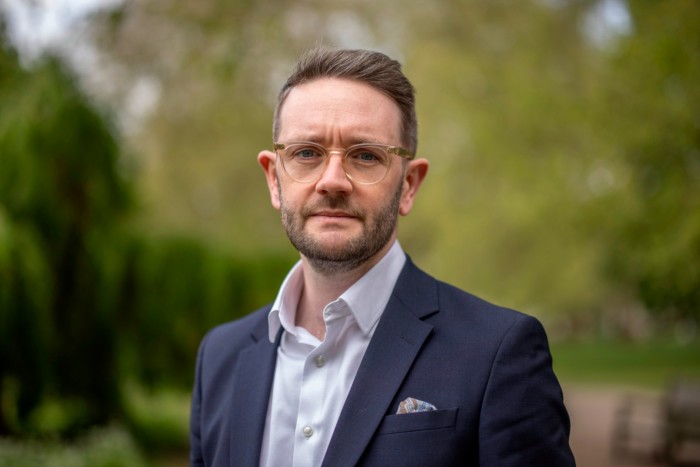New UK climate watchdog chief joins from energy trade group

Unlock the Editor’s Digest for free
Roula Khalaf, Editor of the FT, selects her favourite stories in this weekly newsletter.
A former UK energy industry lobbyist has been appointed to the influential role of leading the government’s climate policy watchdog as it prepares to set a new legal limit on the country’s greenhouse gas emissions.
The Climate Change Committee said Emma Pinchbeck, head of trade body Energy UK, would take over in November, ahead of its publication of a new “carbon budget” next year for the 2038-42 period.
The UK was the first major economy to set a legally binding target five years ago to reach net zero by 2050, but the committee has since advised bluntly and repeatedly that it was not moving fast enough.
The 38-year-old Pinchbeck represented the interests of Energy UK’s approximately 100 members across the heat, electricity, transport and tech sectors, which it said generated about 80 per cent of the UK’s power through wind, solar, hydro, nuclear, biomass and gas.
While it also represents some members involved in oil and gas extraction, UK Energy says it does not advocate for these parts of their business and agrees only to cover specific activities such as renewables.
The trade group said Pinchbeck had been a “powerful advocate” of the transition to clean energy. In the role, she also spoke in favour of burning biomass for power generation and promoted carbon capture, storage and utilisation, which some scientists and environmentalists believe is being promoted by the oil and gas industry to prolong fossil fuel production.
The government announced £21.7bn in support spread for the country’s first carbon capture and storage projects last week, being developed by Italian oil group Eni, BP, Equinor and TotalEnergies. The programme will run for 25 years, relying on a mix of taxpayer funding and higher energy bills.
Pinchbeck also has experience in the non-profit sector as former head of climate change and energy at WWF-UK. But it was her private sector background that CCC interim chair Piers Forster, a professor of climate physics, said would help in assessing the UK’s plans to decarbonise energy.
The committee has been without a permanent head since its outspoken former chief, Chris Stark, stepped down in April. He then warned the UK was losing out on green investment because of the policy rollbacks under Prime Minister Rishi Sunak. Stark is now leading the new government’s “mission control” attempt to decarbonise the electricity system by 2030.

Ed Miliband, UK energy secretary, said Pinchbeck was “well placed to advise and challenge government” on its net zero goals, ensuring it meets its climate commitments with “ambition and urgency”.
Within its first weeks in office, the Labour government also selected former Siemens UK chief executive Jürgen Maier to chair the £8.3bn state-owned GB Energy, which will own, manage and operate clean power projects and support carbon capture and hydrogen development.
It also recently appointed the new UK climate envoy, Rachel Kyte, who has extensive experience in climate policy after working at the World Bank and as a professor at Oxford’s Blavatnik School of Government.
Kyte’s appointment was the subject of opposition questions in parliament this week surrounding a donation by Quadrature Capital, the investment arm of a hedge fund group that funds the independent Quadrature Climate Foundation, where Kyte is co-chair of an advisory board.
Miliband said “all the proper processes were followed” and Kyte was esteemed for her climate leadership. QCF said it was focused on “funding and supporting science-led solutions to climate change”, adding that its donation was “values-based” and that it was “non-partisan and apolitical”.
Climate Capital

Where climate change meets business, markets and politics. Explore the FT’s coverage here.
Are you curious about the FT’s environmental sustainability commitments? Find out more about our science-based targets here
#climate #watchdog #chief #joins #energy #trade #group



